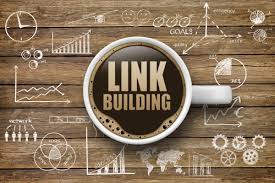
Visits: 1
The Beginner’s Guide To SEO (Search Engine Optimization)
In the vast digital landscape, where billions of websites vie for attention, mastering the art of SEO (Search Engine Optimization) is like having a secret key to unlock the doors of online visibility and success. Whether you’re a website owner, blogger, or digital marketer, understanding the basics of SEO is essential. This beginner’s guide will walk you through the fundamental concepts of SEO and how to get started. The Beginner’s Guide To SEO (Search Engine Optimization)
What Is SEO?
SEO, or Search Engine Optimization, is the practice of optimizing your website or online content to rank higher in search engine results pages (SERPs). The primary goal of SEO is to increase organic (non-paid) traffic to your website by making it more appealing and relevant to search engine algorithms.
Why Is SEO Important?
SEO is crucial for several reasons:
- Increased Visibility: SEO helps your website appear higher in search results, making it more likely that users will click on your link.
- More Organic Traffic: Higher rankings lead to more organic (free) traffic from search engines, reducing the need for costly advertising.
- Better User Experience: SEO involves improving your website’s structure and content, creating a better experience for visitors.
- Credibility and Trust: High-ranking websites are often seen as more trustworthy and credible.
The Core Elements of SEO:
1. Keywords:
Keywords are the foundation of SEO. These are the words and phrases users type into search engines. Effective keyword research helps you understand what your target audience is searching for.
2. On-Page SEO:
This involves optimizing elements directly on your web pages, such as titles, headings, content, and meta tags, to align with your chosen keywords.
3. Off-Page SEO:
Off-page SEO focuses on factors outside your website, like backlinks (links from other sites), social signals, and online reputation.
4. Technical SEO:
This aspect deals with the technical aspects of your website, such as site speed, mobile-friendliness, and proper indexing by search engines.
5. Content:
High-quality, relevant content is key to SEO success. Create valuable content that addresses user needs and questions.
6. User Experience (UX):
A positive user experience, including site navigation, load times, and mobile optimization, can boost SEO.
How to Get Started with SEO:
- Keyword Research: Use tools like Google Keyword Planner or Ahrefs to find relevant keywords for your content.
- On-Page Optimization: Incorporate your chosen keywords naturally into your content, titles, headings, and meta descriptions.
- Quality Content: Create engaging, informative, and shareable content that resonates with your target audience.
-
Technical SEO: Ensure your website is fast, secure, and mobile-friendly. Use an XML sitemap to help search engines index your pages.
- Link Building: Build high-quality backlinks to your website from authoritative sources. Avoid low-quality link-building practices.
- Monitor and Improve: Regularly track your website’s performance using tools like Google Analytics and Search Console. Make adjustments based on the data.
- Stay Informed: SEO is continually evolving. Stay updated with industry trends and algorithm changes.
Conclusion:
SEO is a powerful tool to enhance your online presence and drive organic traffic to your website. While this beginner’s guide provides a solid foundation, remember that SEO is an ongoing process. The more you learn and apply, the better your chances of achieving higher search engine rankings and online success. Start your SEO journey today, and watch your digital presence soar.


%20(1).png)


